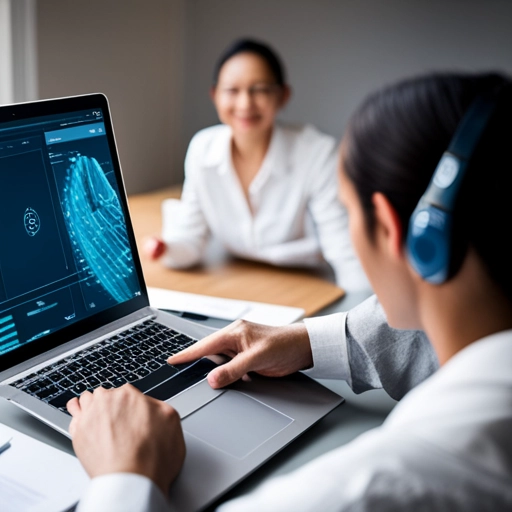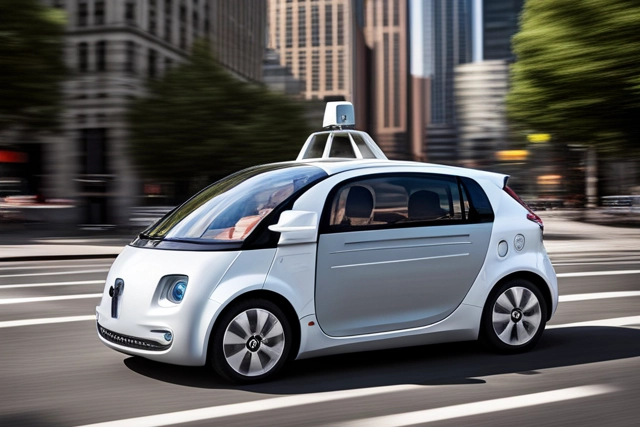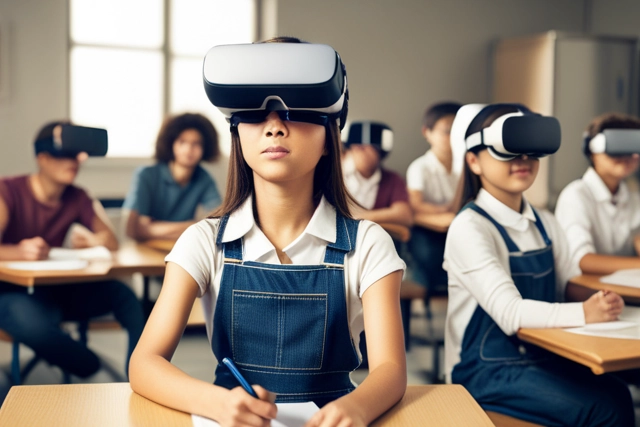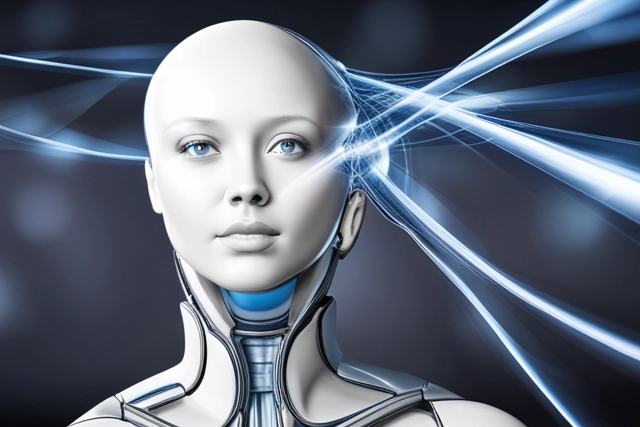Artificial intelligence (AI) has emerged as a powerful force that is revolutionizing every aspect of our lives. From the way we communicate, learn, work, and even entertain ourselves, AI has become an integral part of our daily routines.
This groundbreaking technology encompasses machines and computer systems that can perform tasks typically requiring human intelligence, such as speech recognition, problem-solving, decision-making, and visual perception.
As AI continues to advance at an unprecedented pace, it holds tremendous potential to transform industries across the globe and reshape the future of humanity in ways we couldn’t have imagined before.
In this article, we will explore how AI is reshaping various fields and uncover the incredible possibilities it brings to our society.
Table of Contents
Artificial intelligence in Business: Boosting Efficiency and Productivity

AI is playing a significant role in transforming the way businesses operate and boosting their efficiency and productivity. One area where AI is making a profound impact is in customer service. With the help of chatbots and virtual assistants powered by AI, businesses can handle customer queries and provide support round-the-clock, without the need for human intervention. This not only reduces the workload on employees but also ensures faster response times, leading to improved customer satisfaction.
Another aspect where AI is enhancing efficiency in business operations is through automation. Tasks that were once time-consuming and required manual effort can now be automated using AI-powered tools. This includes data entry, report generation, analysis of large datasets, and repetitive administrative tasks. By automating these processes, businesses can save time and resources while improving accuracy and speed.
Furthermore, AI is enabling businesses to optimize decision-making processes by providing valuable insights from vast amounts of data. Machine learning algorithms can analyze complex datasets to identify trends, patterns, or anomalies that may not be apparent to human analysts. This helps businesses make informed decisions quickly and accurately based on real-time information.
In conclusion, AI has become an indispensable tool for businesses looking to boost efficiency and productivity across various aspects of their operations. From streamlining customer service with chatbots to automating repetitive tasks and enabling data-driven decision making – embracing AI technology offers numerous benefits for modern organizations striving for success in today’s competitive landscape.
Artificial intelligence in Arts: Art & Photo Generators

Art and photo generators powered by artificial intelligence (AI) have emerged as game-changers in the world of art and design. These powerful tools are revolutionizing the way artists create, allowing them to explore new horizons, push boundaries, and unleash their creativity like never before. AI-driven art generators can produce stunning pieces that mimic the style of famous artists or combine various artistic elements to create unique compositions. With these tools, artists can experiment with different styles, techniques, and aesthetics without being limited by their own skills or knowledge.
In addition to assisting artists in their creative process, AI-powered photo generators also offer tremendous potential for designers and photographers. These advanced algorithms can automatically enhance photos by adjusting lighting conditions, removing unwanted elements, or retouching imperfections. They can also generate realistic images from scratch based on specific parameters provided by the user. By employing AI in this way, designers and photographers are able to save time and effort while achieving professional-looking results.
Artificial intelligence has undoubtedly become a transformative force in the world of art and design through its ability to generate stunning artworks and enhance photographs effortlessly. As technology continues to advance at an unprecedented pace, it is exciting to envision how AI will continue reshaping this field in unimaginable ways.
AI in Healthcare: Transforming the Medical Industry

AI in healthcare is revolutionizing the medical industry by transforming the way we diagnose and treat diseases. With advanced algorithms and machine learning capabilities, AI can analyze vast amounts of medical data to detect patterns and predict potential health conditions. This not only saves time but also improves accuracy, thereby enabling early interventions and better patient outcomes.
Moreover, AI is being used to develop personalized treatment plans for patients based on their unique characteristics. By analyzing individual genetic information, lifestyle habits, and medical history, AI algorithms can recommend tailored treatment options that are more likely to be effective. This personalized approach enhances patient satisfaction and improves overall healthcare delivery.
Furthermore, AI-powered robots are increasingly being used in surgical procedures to assist surgeons with precision and efficiency. These robots can perform complex surgeries with minimal invasiveness, reducing the risk of complications and speeding up recovery times for patients. The integration of AI into surgical practices is not only transforming the way surgeries are performed but also paving the way for advancements such as remote robotic surgery.
Overall, AI is playing a significant role in transforming the medical industry by improving diagnostics, enabling personalized treatments, and enhancing surgical procedures. As technology continues to advance, it is expected that AI will further revolutionize healthcare by streamlining administrative tasks, improving drug discovery processes, and even aiding in early disease prevention efforts.
Artificial Intelligence in Entertainment: Redefining the Entertainment Industry

Artificial Intelligence (AI) has made its way into the entertainment industry, redefining how we consume and create content. One of the most significant impacts of AI in entertainment is seen in content recommendation systems. Platforms like Netflix, Spotify, and YouTube now utilize AI algorithms to analyze user behavior and preferences, providing personalized recommendations that keep viewers engaged and entertained. This not only enhances the user experience but also helps content providers deliver more targeted suggestions to their audience.
Furthermore, AI has also transformed the way movies and TV shows are produced. With advancements in deep learning algorithms, AI can assist filmmakers in various aspects of production, including scriptwriting, casting decisions, special effects creation, and even predicting box office success. These technologies enable filmmakers to streamline their creative process by automating repetitive tasks and making data-driven decisions based on audience trends.
In addition to improving content consumption and production processes, AI is also being utilized for virtual reality (VR) experiences within the entertainment industry. By combining AI with VR technology, developers can create immersive worlds where users can interact with intelligent virtual characters or explore dynamic environments that adapt based on user inputs. This integration of AI and VR opens up endless possibilities for creating captivating gaming experiences or realistic simulations that transport users into entirely new realms.
Artificial Intelligence in Transportation: Revolutionizing the Way We Travel

AI is making its way into the transportation industry, revolutionizing the way we travel. Self-driving cars are one of the most prominent examples of AI in transportation. These vehicles use advanced sensors and algorithms to navigate roads, interpret traffic signals, and make decisions on their own. By eliminating human error and optimizing driving efficiency, self-driving cars have the potential to greatly reduce accidents and congestion on our roadways.
Additionally, AI is being used to improve public transportation systems. Intelligent algorithms are being implemented to analyze traffic patterns and optimize routes in real-time. This allows for better planning and scheduling of buses and trains, reducing wait times for passengers and improving overall efficiency. Furthermore, AI-powered applications can provide commuters with up-to-date information on transit schedules, delays, and alternative routes in order to help them make more informed travel decisions.
In aviation, AI is also playing a crucial role by enhancing safety measures. Advanced computer vision systems are being used to monitor runways for potential hazards such as wildlife or debris. AI algorithms can quickly detect these dangers and alert air traffic controllers or pilots accordingly. Additionally, predictive maintenance powered by AI can identify potential mechanical issues before they become major problems, ensuring safer flights.
Overall, with the integration of artificial intelligence in transportation systems, we can expect increased safety measures, improved efficiency in commuting processes, reduced congestion on roads, enhanced sustainability efforts through optimized routing strategies,and ultimately a smoother travel experience for everyone involved.
AI in Education: Enhancing Learning Experiences

In addition, AI chatbots are being increasingly used in educational settings to provide instant support and guidance to students. These chatbots can answer questions, assist with problem-solving, and even provide feedback on assignments. By leveraging AI technology, educational institutions are able to provide round-the-clock support to learners, ensuring that their queries are addressed promptly.
Furthermore, AI tools such as virtual reality (VR) and augmented reality (AR) are transforming traditional classrooms into immersive learning environments. VR allows students to experience real-world scenarios and gain practical knowledge without leaving the classroom. AR overlays digital information onto the physical world, enabling interactive experiences that enhance understanding and engagement.
Overall, by harnessing the power of artificial intelligence in education, learning experiences are becoming more personalized, accessible, and engaging for students across all levels.
Conclusion: The Future of Artificial Intelligence

In conclusion, the future of artificial intelligence holds immense potential for transforming every aspect of our lives. With advancements in machine learning and deep learning algorithms, AI will continue to evolve and become more sophisticated. We can expect AI to play a crucial role in healthcare, finance, transportation, and even entertainment.
One area where AI is expected to make significant strides is in healthcare. With the ability to analyze vast amounts of medical data quickly and accurately, AI systems can aid in diagnosis and treatment decisions. This could lead to personalized medicine that considers each individual’s unique genetic makeup and medical history.
Moreover, the financial industry stands to benefit from AI’s capabilities as well. Intelligent algorithms can help automate tasks such as fraud detection, risk assessment, and portfolio management. This not only increases efficiency but also reduces human error.
Overall, the future of artificial intelligence is promising. As technology continues to advance rapidly, we can anticipate AI becoming an integral part of our daily lives – improving various industries while presenting new challenges that need careful consideration.









